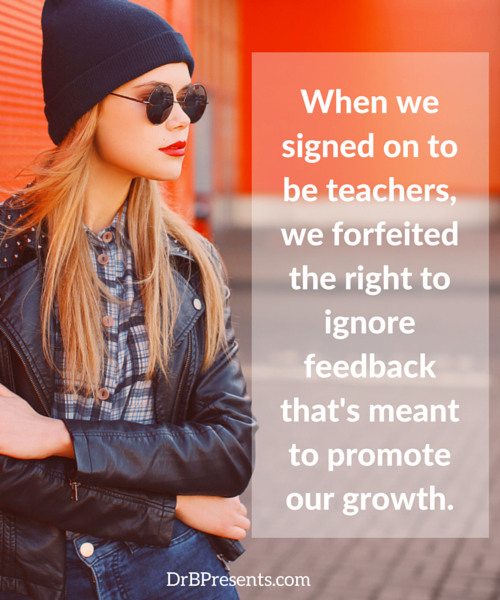by Kelly Beischel PhD, RN, CNE
I recently had breakfast with the associate dean of a local college who I’ll call Thea.
We met to discuss faculty development opportunities and how faculty development changes student outcomes. You know me. I was giddy with excitement to talk about these passions of mine.
As we talked, Thea pulled out her journal to take notes. And we discovered that she and I use the same planner/journal.
I can only imagine what the waitress thought when we geeked out about best systems and strategies for using our planners and journals.
For me? Heaven on earth! I love the systematic rhythm of using planners and journals.
And then something AMAZING happened.
Thea told me that her faculty expressed, during HER performance evaluation, that she needed to provide them with increased timely communication. And what was her response to their feedback?
She went about developing a system to do just that, to improve her communication in a timely manner. Hence, the planner and journal. Why is this amazing? Her faculty were given voice.
How many times have you been given the opportunity to provide feedback on your administrator’s performance? Yep. That’s what I thought.
Very few times, right?
But, Thea’s faculty were given voice, the chance to offer input toward her professional growth.
Feedback on an administrator’s performance,
in my academic experience, has always fallen in one of two camps. The feedback was either heard and promptly ignored or was met with retaliation against the person offering the feedback.
OUCH!
You can imagine then what a pleasant surprise it was for me that Thea did three things.
- First, Thea readily admitted that she needed improvement. Say what?
- Second, she expressed genuine appreciation that her faculty voiced their concerns to help her grow.
 System Improvement
System Improvement - And third, after receiving her faculty’s valuable feedback, Thea investigated various modes for note-keeping and planning.
And then implemented systems and strategies to offer her faculty the consistent and timely communication they desired.
The Dreaded Faculty Evaluation
Similar to Thea, this is the time of year we receive feedback from our students on our classroom performance. Unfortunately, many faculty prefer to live in denial. And who wouldn’t?
It’s more comfortable to live in a place where you don’t have to admit that your teaching needs improvement. But denial that our teaching needs improvement robs us of personal and professional growth. Denial robs us of being the best of who we can be.
Denial leads to stagnation
What does living in denial look like?
Faculty living in denial read their faculty evaluations and … :
1.Toss them in the trash,
giving a litany of excuses for not responding to the feedback within. Well, I suppose that is their response to the feedback, right?
2.Play the blame game.
Which typically goes something like
this:
-
“Students these days want everything handed to them.”
“Students are lazy. They don’t want to do the work.”
“Students want me to entertain them and I’m not in the business of entertaining.”
“Students these days …”
3. Go fetal.
After emoting about how everyone hated them and they should probably quit.
But faculty who want to be effective OWN IT.
They live in the real world where no one is perfect. These faculty members ascertain which comments are most prevalent and/or most egregious. And like Thea, they investigate various modes to improve their teaching.
Faculty living in the real world create an improvement plan. And get to work. They become more effective teachers – step by step. They understand that it’s not an overnight process. They understand it takes time.
But faculty living in the real world are in it for the long haul. So time is not an issue. Improving is the real issue.
The way I see it.
When we signed on to be teachers, we forfeited the right to ignore feedback that’s meant to promote our growth. We gave up the right to stop learning how to be a more effective teacher.
While much of teaching is a science, it’s also an imperfect art.
As such, we will stumble. We will even fall. But we are resilient.
We get back up.
And most importantly when we’re offered opportunities to improve our craft, we grab them. And we grow. We become more effective. Our students deserve it. And so do we. How about demonstrating that you’re a teacher striving to be more effective?
Leave a comment below stating one action step you are going to take to improve your teaching.
I’ll go first. I plan to build more informal assessments into my teaching. Now it’s your turn.

Comments
Add Comment